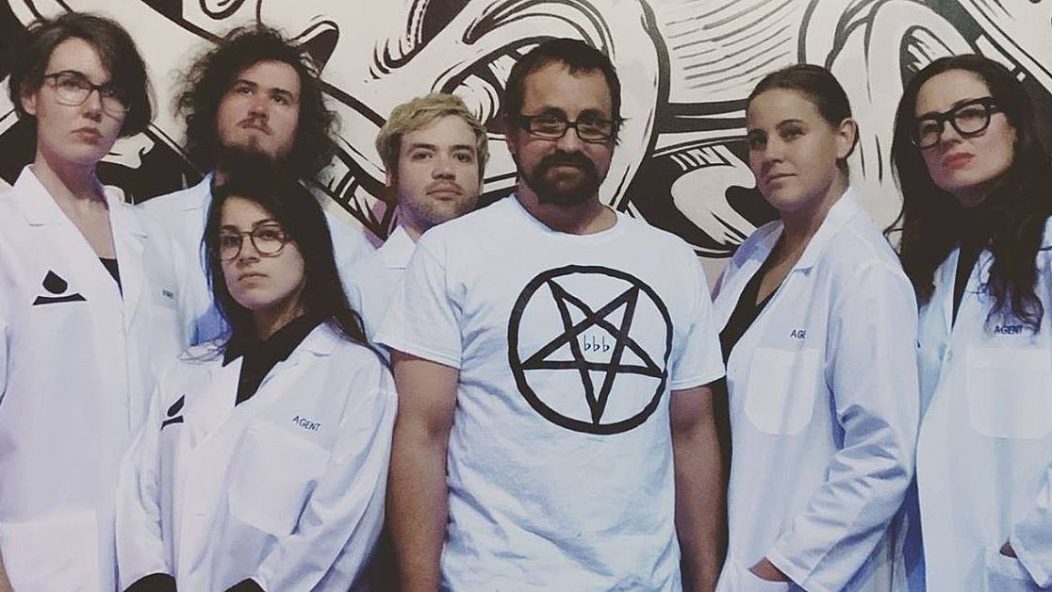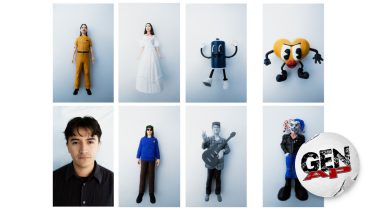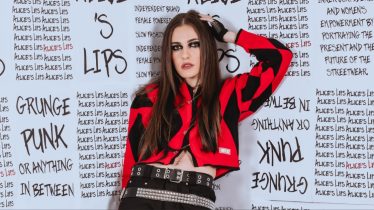
How Wheatus' “Teenage Dirtbag” went from a one-hit wonder to a TikTok phenomenon
When Wheatus entered the spotlight with their self-titled debut album, the band never suspected the whirlwind journey that would soon follow. The record reflected the musings of Long Island misfits, which contained 10 tracks that beamed with snarkiness and attitude, coupled with strong hooks and memorable choruses. While largely experimental and raw at its core, there was a clear sense of pop sensibility, and the album’s breakout hit “Teenage Dirtbag” soon cemented the band as a household name in the early 2000s.
From there, Wheatus were thrust into a series of world tours, high-profile movie placements and national TV appearances, a far cry from their humble beginnings recording music in a basement. Led by enigmatic guitarist, frontman and chief-songwriter Brendan B. Brown, Wheatus continued to release compelling and versatile music over the next 20 years but never reached the same commercial success as their breakout single “Teenage Dirtbag.”
Read more: These 20 songs will make you nostalgic for the 2000s
Fast-forward to the present, where the song is experiencing a massive resurgence across social media, particularly TikTok. Everyone from die-hard fans, celebrities, influencers and Gen-Z newcomers are jumping on the “Teenage Dirtbag” trend. The trend allows creators to show off embarrassing and cringy photos from their youth, set to a sped-up and pitch-shifted Nightcore remix of the beloved track. Celebrities such as Joe Jonas and Demi Lovato have joined the trend, and as a result, the song is reaching younger audiences and new listeners every day. In 2022, “Teenage Dirtbag” has become a multigenerational hit and will go on to be remembered as an important part of pop culture history.
Your self-titled debut record was recorded in your mother’s basement. With the album coming out on a major label, I imagine you were still offered a sizeable recording budget, yet you did the most DIY thing and created the record on your own terms. Was this daunting?
We got $50,000 from Columbia Records and spent the whole 50 grand on everything we needed to make a real record. Columbia was telling us that if we didn’t finish in time, our demos were going to come out. There weren’t a lot of real drums on those demos, so we finished the record properly at my mom’s place. The basement of my mom’s house was a tall ceiling basement on Long Island with plaster walls and old ’70s-looking wood panels. We set the drums up there and put the control room in her dining room. We made a mess for about three weeks in late February and early March of 2000.
Once you delivered the album to Columbia, you essentially went from the basement of your mother’s humble home to being thrust into the music industry in Hollywood. Did this feel like a culture shock?
We thought that since we were allowed to self-produce [the record], we would be allowed to pick our own wardrobe and video director, but none of that was true. [Laughs.] It’s a multinational corporation, and they don’t care what you think, so the first thing that they wanted me to change was the lyric in the second verse of [“Teenage Dirtbag”] “Her Boyfriends a dick/And he brings a gun to school,” which set the tone for the way things were at the label — we had an adversarial relationship.
Obviously, “Teenage Dirtbag” then becomes a massive hit and cultural phenomenon. However, there are several songs on the album that have the same infectious nature and hold up just as strongly. Were there any tracks that you felt were overshadowed by the success of the lead single?
I felt like “Love is a Mutt From Hell” could have used a makeover and then would have done something — it’s one of my favorite songs from the record to perform these days. I always felt strongly about “Sunshine,” and the label looked at “Leroy” and tried to do something with it, but the conversation died. I don’t know what else could have been done with the record, and there wasn’t a lot of focus on anything but “Teenage Dirtbag.” The American label didn’t do much with it at first, and we went through a period after the release of the first record for half of a year where nothing was happening with it, and it was dead in the water. Suddenly, things turned around with Australia first and then the U.K. and Europe. We wound up spending 2001, 2002 and 2003 overseas.
Would you say that “Teenage Dirtbag” securing the movie placement in the early 2000s comedy film Loser was paramount to you breaking out stateside?
I always thought that the involvement of Mena Suvari and Jason Biggs in the video was a really big favor that they did for us. It wasn’t the video that I had envisioned, but I remember thinking that it was this Hollywood thing that I didn’t understand. We didn’t have Hollywood ambitions as a New York band.
This brings us to today, where “Teenage Dirtbag” is experiencing a massive resurgence on TikTok. The TikTok trend also shows people’s “dirtbag” moments in their lives as well as their youth. Would you say that the meaning of the song gets lost in translation with the trend, or does it even matter?
It doesn’t matter, but it doesn’t matter that it doesn’t matter. [Laughs.] If you put something out there, people will see themselves the way that they see themselves in it. You want to talk about a hot mess? When I was a kid, I related to a movie called The Last Dragon, which is essentially a New York City urban setting for the Karate Kid story. I saw myself in that film, and if you watched this movie, you would be like, “How does this fucking idiot from Long Island see himself in this movie?”
@gwenstefani ♬ Teenage Dirtbag – Sped Up (and she doesn’t give a damn about me) (Sped Up) – Wheatus & slater
However, when you’re alone and trying to figure it all out, whatever appeals to you appeals to you. If somebody puts a picture of themselves on the hood of a police car and that’s their “dirtbag” moment, maybe they were alone in the cell that night when they were waiting to be processed. I don’t know what is, but I just know that it’s everyone’s right to experience it the way that they do. Now if some Republican uses it, I’m going to double middle finger it and tell them to fuck off. [Laughs.] If Matt Gaetz uses it, I’m gonna get on his Twitter account and tell him what I think about him.
@ddlovato A teenage dirtbag 🤷♀️
♬ Teenage Dirtbag – Sped Up (and she doesn’t give a damn about me) (Sped Up) – Wheatus & slater
Have there been any celebrities who have jumped on the TikTok trend recently that made you smile?
The one that hit me the hardest was Cheech and Chong. To see these guys doing the weird little thing that I created blew my mind, and I was an instant fanboy.
@cheechandchong Time flies man 💚 #fyp
♬ Teenage Dirtbag – Sped Up (and she doesn’t give a damn about me) (Sped Up) – Wheatus & slater
What do you think of the Nightcore remix of the song where it’s sped up and pitch-shifted?
I don’t even view it in an artistic light. It’s more like a utilitarian mechanism. The song needs to fit this thing, and I love that the internet is like, “Squish it down,” and it feels practical and doesn’t bother me at all.
You can really hear Wheatus’ influence with so many newer artists. What do you make of the effect that you’re having on the next generation, and are there any artists you’d like to shout out?
That’s an interesting question. In my own world, Dashboard Confessional is a career that I want, where you have this wonderful career that is self-sustained and everyone shows up. There’s a huge number of what I call the “Phoebe Bridgers Tree” of songwriters, and whenever Spotify tells me I might like something within that algorithm, I’m like, “Oh yeah.” I think the female singer-songwriter world is super special these days. For shouting out bands and young artists I really like, Jax, Lauran Hibberd, Orla Gartland, Peach PRC and dodie.









